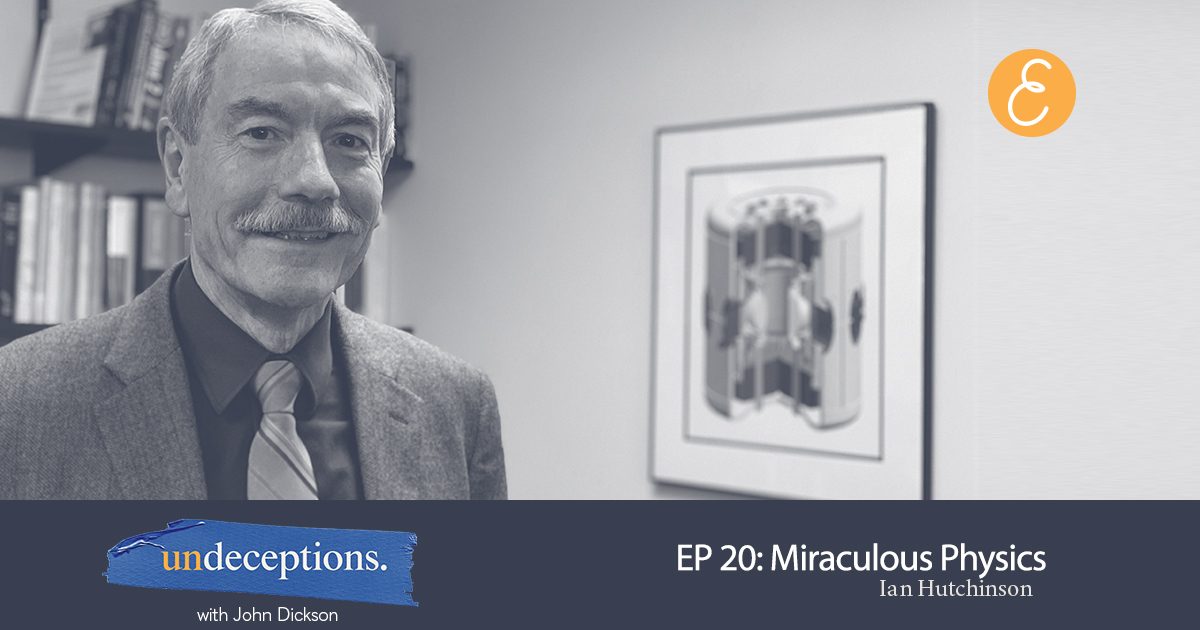Ian Hutchinson is Professor of Nuclear Science and Engineering at Massachusetts Institute of Technology’s Plasma Science and Fusion Center.
Among many, many other things he wrote the standard monograph on measuring plasmas, Principles of Plasma Diagnostics. That’s right, he literally wrote the book on plasmas.
He’s also a fellow of the American Physical Society, a fellow of the Institute of Physics, and of the American Scientific Affiliation. And… he believes in miracles – healing, resurrection, all of the miraculous.
Find out why.

LINKS
- For more on Professor Ian Hutchinson, check out his web site.
- Check out his book, Can A Scientist Believe In Miracles? by Ian Hutchinson
- And while you’re clicking, have a look at the Undeceptions web site for all sorts of cool stuff related to undeceiving the world
- Special thanks to Zondervan Academic, our show sponsor
- Ridley College, where John lectures in Public Christianity
- You can click here to sign up for the With All Due Respect podcast with Michael Jensen and Megan Powell du Toit
- Want to send John Dickson a question? He loves them. Just click here to provide a query for our next Q and A show!
- Undeceptions is part of the Eternity Podcast Network, an audio collection showcasing the seriously good news of faith today.
Get to know our guest

Ian Horner Hutchinson is a nuclear engineer and physicist who is currently Professor of Nuclear Science and Engineering at the Massachusetts Institute of Technology. Hutchinson received his B.A. in physics from Cambridge University in 1972. He then received his Ph.D in Engineering Physics from Australian National University in 1976, where he was a Commonwealth Scholar.
He has made a number of important contributions to the fields of nuclear engineering and nuclear physics and has also written about the philosophy of science and the relationship between religion and science. [source]











































